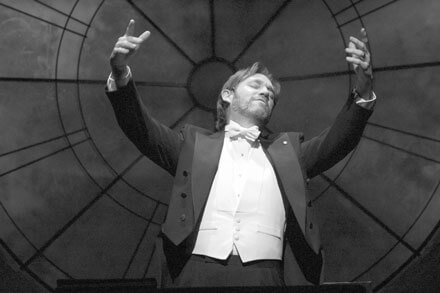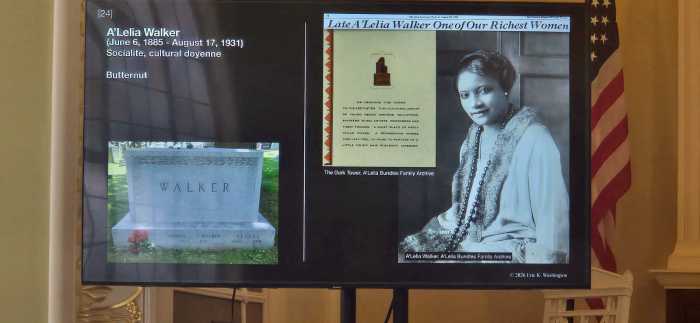Terrence McNally spoofs the relationships among art, artists, and us
American tourists arrive in Florence to view “The David,” and their experience of beauty turns out to be far more self-referential than at all about the art.
In “Full Frontal Nudity,” the first in an evening of one-act plays, one gawking youth, gazing at Michelangelo’s “capolavoro,” thinks to himself, “I don’t see what the big deal is. I have a bigger dick… If I where his size, mine would be bigger… foreskins can be very misleading.”
So it goes, in Terrence McNally’s comic snapshot of our fellow travelers and even of ourselves––an image made up of self-absorbed stereotypes hungry for lunch, sex, and companionship. Americans apparently have no monopoly on this excessive focus on self. As the youths’ tour guide, Bimbi, played by Isabella Rossellini, too is self-involved.
But McNally’s quick repartee and his use of the characters’ unconscious thoughts as dialogue bring out the humanity in these pedestrian folk as they face the enormous beauty before them. Aptly, the unsophisticated blonde, Lana, hardly capable of intellectual insight or much depth at all, remarks of herself, “Not every Lana is a Turner, and not every Turner is a Lana.” In this role, Jennifer Mudge brings a new dimension to the dumb blonde, ultimately surprising us with her ability to encounter the god-like in the youthful, athletic David.
Michael Countryman’s Hector, on the other hand, a retired teacher and a widow, demonstrates alternately the hollowness and sadness of the aesthete while Yul Vazquez is highly entertaining in his perceptions of the nude sculpture. Introducing himself as David’s equal or sequel, “Sampson is the name, and mighty is the frame.”
Unfortunately, Rossellini, so long the object of our admiring gaze and fascination, seems misplaced as the tour guide. Oddly self-conscious in a role that’s neither grand nor worthy of her sexiness, she appears more true to herself as the grande dame in the evening’s second one act, “Prelude and Liebestod.” Ensconced in a box in the concert hall, she peers down on her husband, the famous conductor.
While “Nudity” looks at our experience of art and the artist, “Prelude” takes on the artist’s view of his work, and of the people observing it. And Richard Thomas’ conductor is so vain! Here again, the characters unravel through their unconscious thoughts as the audience eavesdrops. Taking his place in front of the orchestra, he thinks aloud, “Fill lungs… heave bosom… there are no empty seats. There’s no one as popular as me. Nowhere close. We’re number one and we don’t try harder.”
But the humor of the piece fades as the conductor rambles on and on about his favorite orgasm, an encounter with a young Italian man in a strange apartment, blind folded, tied to the bed. As portrayed by Thomas, it’s a convincing memory, but really not all that exciting when one is not a participant.
McNally doesn’t spare us any cynicism in creating this narcissistic hero, who is by far more vulgar than any of the first act’s tourists.
“You’re singing through the wrong hole. This is twat music,” the conductor thinks as the soprano (Jennifer Mudge) performs.
Our inability to appreciate art, our drive to contain it, and our misconceptions in doing so are very much the subject of the evening’s two one-acts, collectively entitled “The Stendahl Syndrome.” As explained in “Full Frontal Nudity,” the French writer was fascinated by our physical response to art, describing how women particularly became “overstimulated…[and] fainted.” Indeed, in “Prelude,” the conductor imagines himself dying at his own wand.
Michael McGarty’s set is a convertible temple, first The Academia where “The David” is housed, and later the grand music hall. Directed by Leonard Foglia, the two one-acts poke welcome fun at how we love to feel moved, guided by what is, at best, intellectual masturbation.



































